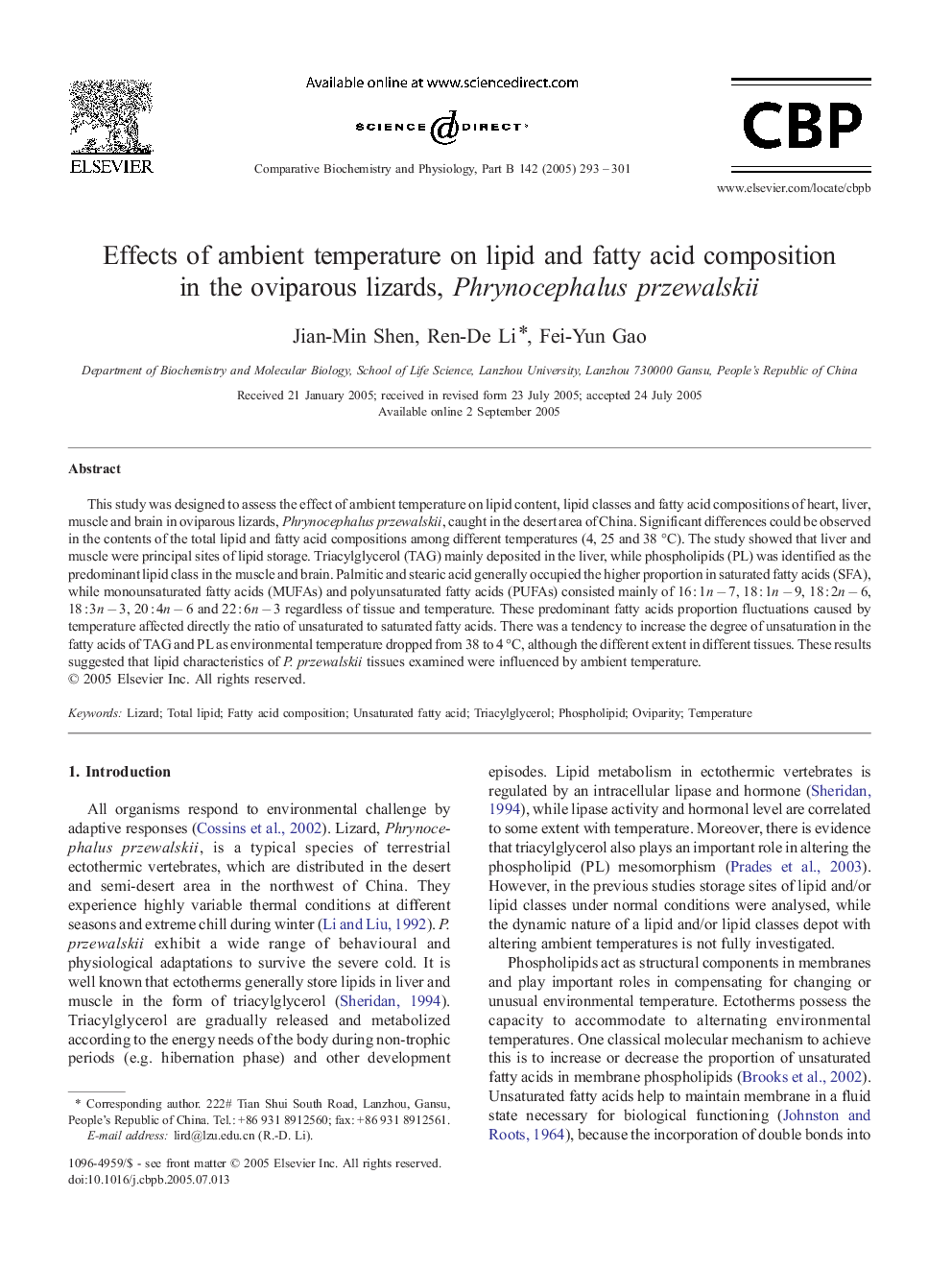| Article ID | Journal | Published Year | Pages | File Type |
|---|---|---|---|---|
| 10820551 | Comparative Biochemistry and Physiology Part B: Biochemistry and Molecular Biology | 2005 | 9 Pages |
Abstract
This study was designed to assess the effect of ambient temperature on lipid content, lipid classes and fatty acid compositions of heart, liver, muscle and brain in oviparous lizards, Phrynocephalus przewalskii, caught in the desert area of China. Significant differences could be observed in the contents of the total lipid and fatty acid compositions among different temperatures (4, 25 and 38 °C). The study showed that liver and muscle were principal sites of lipid storage. Triacylglycerol (TAG) mainly deposited in the liver, while phospholipids (PL) was identified as the predominant lipid class in the muscle and brain. Palmitic and stearic acid generally occupied the higher proportion in saturated fatty acids (SFA), while monounsaturated fatty acids (MUFAs) and polyunsaturated fatty acids (PUFAs) consisted mainly of 16 : 1n â 7, 18 : 1n â 9, 18 : 2n â 6, 18 : 3n â 3, 20 : 4n â 6 and 22 : 6n â 3 regardless of tissue and temperature. These predominant fatty acids proportion fluctuations caused by temperature affected directly the ratio of unsaturated to saturated fatty acids. There was a tendency to increase the degree of unsaturation in the fatty acids of TAG and PL as environmental temperature dropped from 38 to 4 °C, although the different extent in different tissues. These results suggested that lipid characteristics of P. przewalskii tissues examined were influenced by ambient temperature.
Keywords
Related Topics
Life Sciences
Biochemistry, Genetics and Molecular Biology
Biochemistry
Authors
Jian-Min Shen, Ren-De Li, Fei-Yun Gao,
